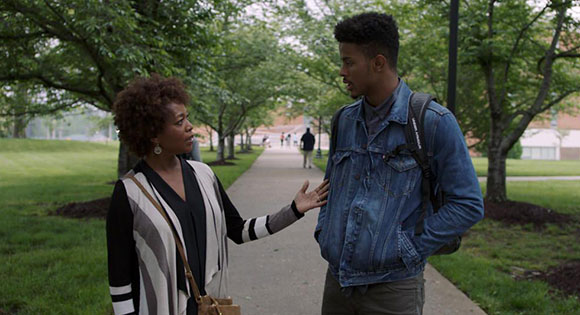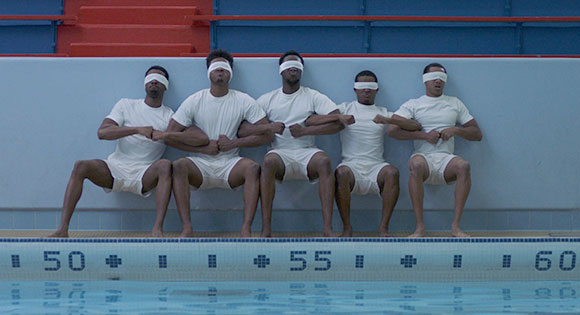According to the National Collaborative for Hazing Research and Prevention, hazing is defined as "any activity expected of someone joining or participating in a group that humiliates, degrades, abuses, or endangers them regardless of a person's willingness to participate."
This same website presents these facts about this morally reprehensible ritual:
- 1.5 million high school students are hazed each year; 47% of students come to college already having experienced hazing.
- 55% of college students involved in clubs, teams, and organizations experience hazing.
- Alcohol consumption, humiliation, isolation, sleep-deprivation, and sexual acts are hazing practices common across all types of student groups.
Gerard McMurray directs this drama set on a fictional all-black campus called the Frederick Douglass University. It will begin streaming on Netflix beginning March 10, 2017.

Zurich (Trevor Jackson) wants to be a member of Lamba Phi, so he subjects himself to three weeks of hazing. The leaders of the fraternity resent his inability to follow orders and his connections with Professor Hughes (Alfre Woodard) and Dean Richardson (Steve Harris) who recommended him to the fraternity.
What is the point of suffering all the pain and humiliation of hazing? Tradition has it that it is a test of character and those who go through it become worthy of "leadership, scholarship, compassion, and brotherhood."

The violence that various members of Lamba Phi inflict on Zurich is excessive and senseless. Since we learn nothing about the college student perpetrators, it is hard to say what motivates them to cross the line and really hurt this pledge.
The only reason to see Burning Sands is to realize how the myth of redemptive violence has permeated our culture and is manifested in this wretched and dangerous ritual.
